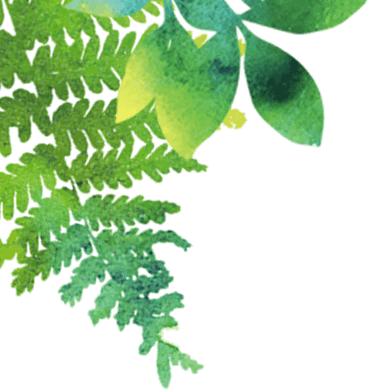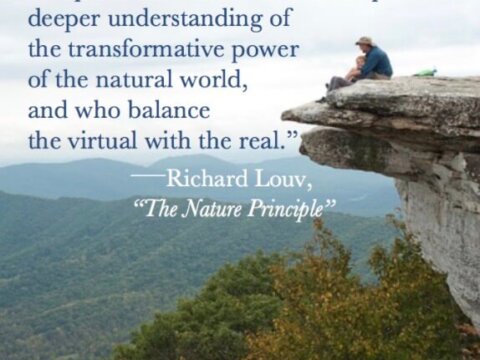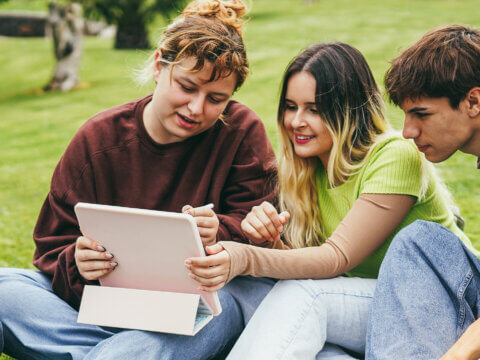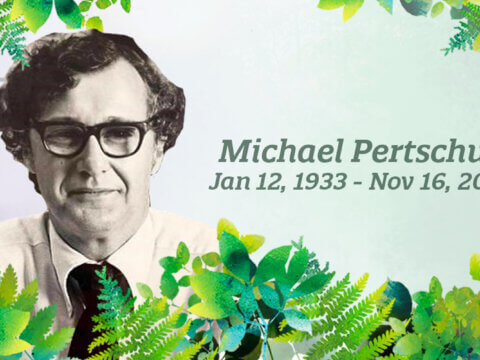That’s nice, mija: Finding common language in nature connections
Growing up, my family didn’t do the outdoors — or so I thought. Later, during my first job as an educator at Houston Independent School District’s Outdoor Education Center, I stepped outdoors literally every day to teach fifth graders about farming, forestry, pond life, and more. Turns out I loved it. Nature put me at ease and brought out my curiosity; kids drew upon my playful side. The combination of the two was – and still is – a place of joy.
For years, I would come home to share my new work developments with my mom. News of restoration efforts in Trinity, Texas; transforming New York City rooftops into horticultural oases; facilitating workshops on renewable resources — each of my projects was met with a simple nod. “Mom, I recently completed a habitat restoration project with a school,” I would share excitedly. My mom would reply with kindness, “Uh huh, that’s nice mija. So, did you know…”
The pattern continued for years. Then six years ago something shifted. I had the opportunity to take a camping trip with my then seven-year-old son Max and a good friend and her three boys. Upon return, I shared the experience with my mom. I anticipated the usual blank stare. Instead my mom’s curiosity was piqued.

The author’s mother on a walk at Enchanted Rock State Park in Texas.
“You didn’t have electricity?” she asked. “How did Max survive without his screen?” I described how we played with sticks, swung in hammocks, and stayed up staring at the stars. This triggered something in her. She shared stories of laying in the back of the truck at night with my abuela (her mother) telling stories to help her and her siblings to fall asleep and forget that they were in the same field they’d labored in all day.
Her questioning continued, “If you didn’t have electricity, did you have water?” My answer: “No, we collected water in gallon buckets with the boys taking turns working the pump and hauling it back to the campsite.” Another memory surfaced: the memory of the way she used to haul water to fill basins for washing clothes outside. “No water? Did you have restrooms?” she asked. “Compostable toilets —” I began, and corrected myself to say we had outdoor toilets. Chuckling, she recanted the story of she and her older sisters shaking the sides of the outhouse to scare their youngest brother at night. Turns out my mom didn’t have indoor plumbing until she was 13. As she shared these memories, we laughed and ate pan dulce — Mexican sweet bread — for hours.
In my years working to promote access to the outdoors for brown children and families, I saw my efforts as separate from my family and culture. Yet during this conversation with my mother, I realized that we in fact shared similar experiences in nature. I realized that she did have a deep connection to the land. And, my mom realized that my time outdoors was about connecting with family and friends. Fancy conservation words didn’t mean much to her, but family connections did. All this time, we had used different words to express the same connection.

The City of St. Paul, Minnesota organizes BIPOC hikes and urban camping experiences. The Parks and Recreation staff make an effort to hire leaders who speak the language or represent the communities served.
Like many other young leaders of color forging new educational and professional paths, I had sought to impress my mom with how much I had learned. How her investment in me was paying off. I didn’t know it at the time but my choice of words was creating a divide. Instead, I needed to start from a place of connection and understanding.
This is a lesson that I bring to my current work — ensuring that when we bring communities of color or culturally diverse people outdoors, that we start from values, a place of cultural understanding, and a common language.
Translating a flier into another language is a start, but it is more than that. It means prioritizing resident’s input, culture, history and traditions as we plan and execute nature-based programs. It means asking local community members how they like to enjoy the outdoors. It means hiring staff who look like, can speak with, or are from the local community. It means helping to change the narrative of how and who enjoys nature by sharing stories of different ways that different cultures view and connect with nature. These types of efforts are essential if we really intend to advance equity in connecting families and communities to nature.

The City of Austin prioritizes schoolyard parks as a strategy to equitably connect children to nature and developed a bilingual photo-based online survey to collect community input.
I’ve seen successful models of this approach in cities across the country. From St. Paul, Minnesota hiring local community members to lead hikes in Spanish; to Rochester, New York developing a Children’s Outdoor Bill of Rights led by youth and local residents; to Austin, Texas’s Parks Foundation communicating in both Spanish and English. These are just a few examples, but they give me hope as I work closely with city leaders and community organizations to be inclusive of different cultures, experiences and connections with nature and the outdoors.
All the while, my experience with my mom grounds me in the importance of shared values, stories, and experiences – which helps me to be a champion for families, young aspiring leaders, and for the many Black and brown people who do not see themselves as one in nature and in community.
3 Comments
Submit a Comment
Toolkit: Creating systems change in cities
Video: Equitable Access to Nature: A Systems Change Approach
Advancing Equity in Children’s Connection to Nature
Research Digest: Youth and Resident Engagement
Together in Nature: Pathways to a Stronger, Closer Family (English)
Juntos en la Naturaleza: Caminos para lograr una Familia más Unida y Fuerte (Español)
-
Voices
CAMPING WHILE PARENTING: A Mother-Son Adventure
-
Feature
A common thread: Indigenous-led foundation weaves together activism and art, climate and community
-
Network News
Community Spotlight: Prescribe Outside
-
Voices
That’s nice, mija: Finding common language in nature connections
-
Richard Louv
"HUMMINGBIRD PARENTS": Seven Actions Parents Can Take To Reduce Risk And Still Get Their Kids Outside







Thanks for this wise piece of writing, and your great work!
What a wonderful piece Monica! Thank you for sharing.
What a great article – for so many reasons. Thank you for sharing this with us.